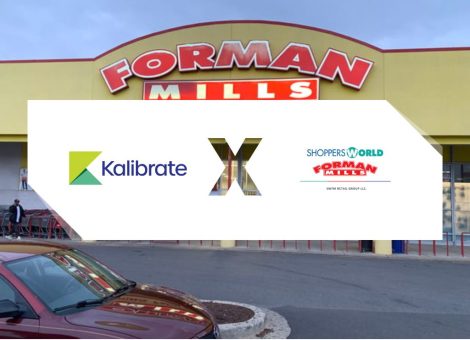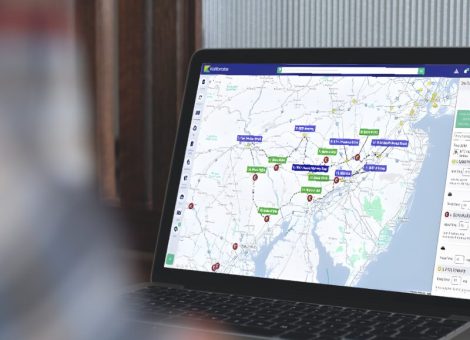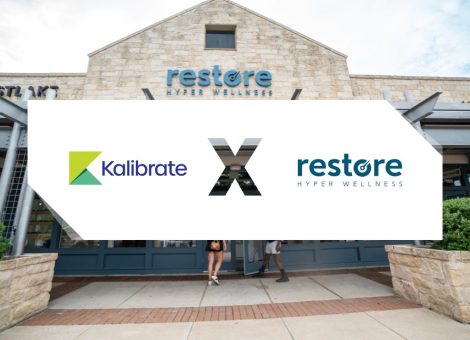Catch-up with Kalibrate CEO, Charles Wetzel

Tell us about the experience of moving into the CEO position at Kalibrate
I came at it probably a little bit differently than most ‘promotions’, as I was President & CEO at eSite when we came into the Kalibrate fold. I’ve always taken the macro-level view on how the group structure could evolve and the direction we could take. Of course, having the opportunity to take the lead in continuing that journey is exciting.
The capabilities within the group place us ahead of pretty much everyone else in our space. We learn from each other – take the best bit from here and there, all the time strengthening what we’re doing whether it’s platform design, analytics, or how we deliver support.
As eSite was invested in, rather than acquired, there was somewhat of an emotional aspect in how eSite team members saw themselves as part of the whole. In the early stages of change, it’s natural that there were some anxieties. We’re now in a position where everyone should be clear about where we are headed – whether that’s in their role or our offer to the market as Kalibrate. The Kalibrate CEO position now is probably a different proposition to the role 18 months back when people were still finding their feet.
In terms of the actual promotion to CEO, there was relatively little fanfare from my perspective. Oliver Shaw, my predecessor, and I talked about succession strategies for a while. Although it was never part of any grand plan, I knew that it was a company with great prospects, but I was also aware there were things we could do slightly differently – particularly around how we integrated modeling methodologies.
I’ve always been a cheerleader for truly integrating the location intelligence brands’ capabilities into one proposition. We have made great progress in the last 12 months, and we are now adding and reassigning resources to speed up that process.
Take the changes we have made in the leadership team – Bill Dakai was President at TAS and had retained elements of that role with the day-to-day noise that comes with that position. But Bill wanted to go back to his roots in development – building the latest and greatest platforms for our clients. We’ve made sure Bill is doing exactly that, and with greater scope to control the entire customer journey of using our products.
Justin Tischler, President at Intalytics, now has the remit of Chief Operating Officer, bringing all his expertise in analytics to bear across the organization. His ability to understand what the customer needs as well as understand how we can align our business to ensure appropriate employee progression and customer satisfaction is seen by those that work with him on a frequent basis. We are making sure we have specialisms allocated to where we deliver best for the whole business because that means better solutions for our customers.
You’ve held roles at location intelligence providers in the past, how do they compare to Kalibrate as it is today?
Before I got into location intelligence businesses, I was a strategy consultant. I was used to seeing the entirety of an organization, but perhaps not in the greatest depth. What first made me interested in Buxton, where I was short of a decade, were the green shoots of potential it exhibited. It was an awesome solution, but I felt location intelligence had a great potential to better communities as well in terms of job creation and ancillary elements like that. I’m not hugely mathematical or programmer oriented, but I listen actively so I took a strategic perspective about where the location analytics space could be headed.
It’s less that Kalibrate and the businesses I’ve worked at before are totally different animals, more that the industry that consumes their products has changed. From the early 2000s to today, the pivots in our space have been incredible. There has been huge growth in the volume and granularity of data available and the rise and rise of ecommerce, all set against the turbulence felt by consumers. For “retailers”, that means they need a greater quality of insight to support decisions. In turn, location intelligence businesses have adapted to equip themselves to help.
From a Kalibrate perspective, we deliver best-in-class analytics across the spectrum of place and promotion, and pricing for fuel retailers. Our customers are diverse, and they use our solutions in a variety of different ways. The methodologies behind what we do must be innovative and keep up with their needs.
I like to think we’re in the business of ‘the art of possible’ – and because what is possible changes so much as tools and AI get more sophisticated or data becomes more powerful, it’s about having people that have sat in the seats of retailers and know what’s going to be most valuable to customers.
eSite and the other location intelligence brands have a significant footprint in the US. How have you found working on a global basis in the Kalibrate structure?
It’s different, for sure, and parts of it are challenging. For the most part, brands – that already are or want to be global – have a base in North America. They tend to be quite mature in their use of data and what can be achieved with a location intelligence toolset.
Elsewhere, and this varies a lot, we sometimes have to educate people in what is possible. Some brands might be mature in their own market but for several reasons haven’t fully embraced location intelligence. Part of that is data availability – and it’s one of the challenges Kalibrate finds too. In North America, the go-to data vendors are well-established. As you go to other markets, those vendors might have a presence, but the data granularity isn’t quite what we’d find in the US or they might not be there at all, so we do the research and source alternatives.
A lot of the groundwork for location analytics was done in North America in the early 90s. It’s proven, accepted, and used by most. When we’re engaging businesses that haven’t historically leveraged these types of tools, we find ourselves doing more proof of concepts purely because it’s something so new.
The next element is providing global support. Kalibrate has offices in the UK, Australia, India, and Japan, and we’ve added virtual offices elsewhere in Asia, South America, and in Africa. It’s about making sure we have the right resources to cover each area – both from a language point of view and availability across working hours and time zones. Operationally, it’s different, but not insurmountable. Kalibrate has had global structures and practices in place for many years, so it’s about learning what’s already there, adding resources where we need them, and making sure we’re meeting the standards we set ourselves.
The Customer Advisory Board highlighted customer experience as a priority. How is the strategic direction of Kalibrate taking that into account?
Our values as a company mean we’re very orientated around the customer. Two in particular I’d call out – ‘We do what we say we’re going to do’ and ‘We collaborate to get the job done’. Taken together, these values mean that we’re delivering with all our team’s experience and expertise with our clients as our partners. Starting with that type of ethos and hiring people who understand what it’s like to sit on the retail side means we have good foundations.
But there’s always more we can do. I’ve made some changes to the executive that will see the leadership team have more relationships with customers. Getting our team ever closer to clients and having that window into how we’re doing will help us be nimbler and more responsive.
We got some great feedback from the Customer Advisory Board. They see what we’re doing – and have agreed to give us feedback as we craft our strategy for 2024 and beyond. We look forward to sharing more of our insights from this group and what we plan to do with the feedback.
Bill Dakai mentioned it in a recent blog, but just to reiterate – we’re really going after client feedback. The resource we’ve added in development will mean we can make big gains on speed and delivery across our tools. We’re always in listening mode around how we can help you do more. I hope that being as receptive as possible, acting quickly, and then starting that feedback loop again – how did we do? – will help us get even better.
Is there anything you’d like to leave our customers with?
The first thing I’d say is we’re not done! We’ll continue to look for best-in-class companies that add breadth to our services, whether it’s in other countries and/or adjacencies that complement our offer. When we acquire businesses, they must add value to our customers – whether that’s through new capabilities, regional specialty and domain expertise, or greater efficiency.
Like TAS, eSite, Intalytics, and the Kent Group before that, we’re only interested in the best – the leaders in what they do. But there has to be compatibility on a values level. Circling back to customer experience, the reason the businesses acquired and the people behind them have integrated to date is a shared passion for data and analytics, being innovative and approachable, and delivering great outcomes. Companies that focus on scaling rapidly at the expense of everything else – they’re not going to be for us.
My second point is that we’re driven by innovation. We’re not resting on our laurels of who we are and what we are. We want to continually enhance our data, software, and analytics. I’ve seen too much to know you just can’t stand still. Across retail verticals, there’s constant change. For example, the split of sales across channels will continue to be disrupted by new entrants, technologies, and shifting consumer behaviors. Of course, as vendors to retailers, our competition changes too.
To customers, keep an eye out for our communications, speak to your account managers, come see us at events, and explore our solutions on the website – we’ll always be doing something new.
Read more articles about:
Location intelligenceSubscribe and get the latest updates
You may unsubscribe from our mailing list at any time. To understand how and why we process your data, please see our Privacy & Cookies Policy
Related resources
Location intelligence
Forman Mills accelerates growth with the Kalibrate Location Intelligence platform
The value apparel and home goods retailer selects Kalibrate to to support its national expansion strategy.

Location intelligence
Introducing Site Tours: The modern way to plan market tours
Build your next site tour in the Kalibrate Location Intelligence platform.


